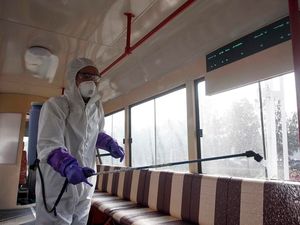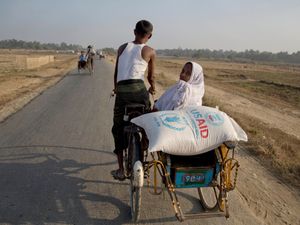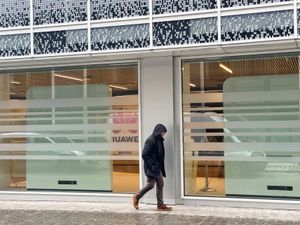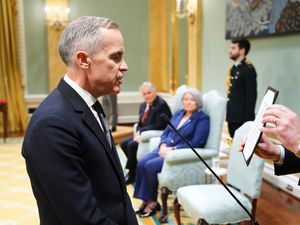Action stepped up across world to battle coronavirus spread
As well as the health implications, there are also concerns about how the outbreak may impact the world’s economies.

Scientists are racing to find a treatment, health crews are scrubbing everything from money to buses, and quarantines are being enforced in places from a beachfront resort in the Atlantic to an uninhabited island in the Pacific as the world battles the spread of a new virus.
Concern is also growing over the economic fallout of the coronavirus outbreak, with work at many factories halted, trade routes frozen and tourism crippled, while a growing list of countries brace for the illness to claim new territory.
Even the Tokyo Olympics, five months away, are not far enough off to keep people from wondering if they will go ahead as planned.
About 81,000 people around the globe have now been infected with Covid-19, and that number continues to increase as it spreads.

In Europe, Germany, France and Spain are among the places with a growing caseload – with an expanding cluster of more than 200 cases in northern Italy eyed as a source for those transmissions.
In the Middle East, where cases have increased in Bahrain, Kuwait and Iraq, blame is being directed towards Iran amid fears the extent of the outbreak there has been underestimated.
In Asia, where the crisis originated late last year in China, threats continue to emerge around the region, with South Korea battling a mass outbreak centred in the 2.5 million-person city of Daegu.
Though the virus has pushed into countries both rich and poor, its arrival in places with little ability to detect, respond and contain it has brought concern it could run rampant there and spread easily elsewhere.

In South Korea, workers sanitised public buses, while in China, banks disinfected banknotes using ultraviolet rays.
In Germany, authorities stressed “sneezing etiquette”, while in the United States, doctors announced a clinical trial of a possible coronavirus treatment.
Around the world, as Christians marked the start of the holy season of Lent with Ash Wednesday, worshippers found churches closed and rituals changed by virus fears.
Even in St Peter’s Square, many of those gathered for Pope Francis’s weekly audience wore face masks and clergy appeared to refrain from embracing the pontiff or kissing his ring.
Services in Singapore were broadcast online to keep people from crowded sanctuaries where germs could spread, bishops in South Korea shuttered churches for what they said was the first time in the Catholic Church’s 236-year history there, and in Malaysia and the Philippines, ashes were sprinkled on the heads of those marking the start of Lent instead of using a damp thumb to trace a cross of ashes.

Major gatherings were eyed warily, with organisers scrambling to respond in the face of the epidemic.
Looming largest of all are the Olympic Games, with the opening ceremony scheduled for July 24 in Tokyo.
A member of the International Olympic Committee, Richard Pound, has sounded alarm this week by saying the virus could force the cancellation of the Games.
The Japanese government, in turn, gave mixed signals, insisting Olympics preparations will continue while other forthcoming sports and cultural events are curtailed.





